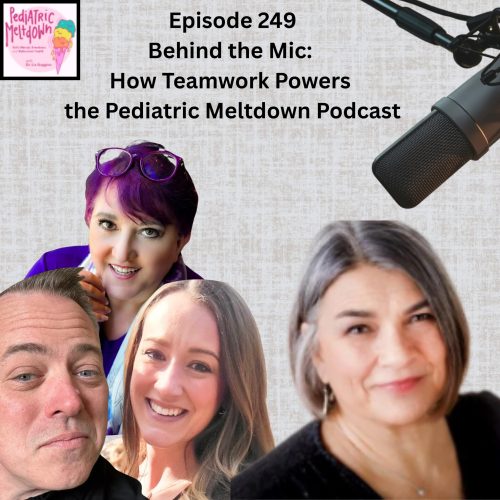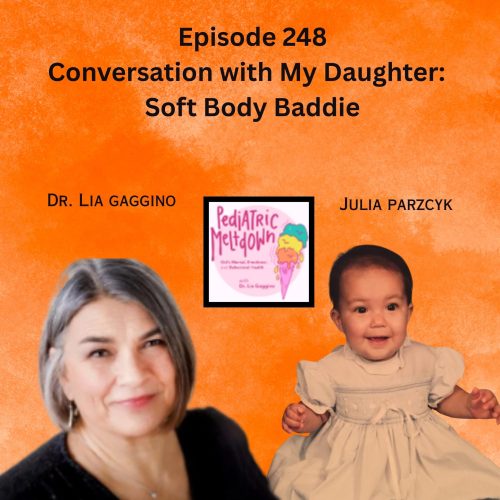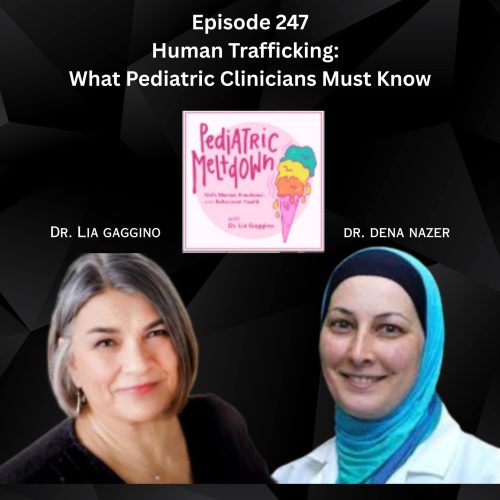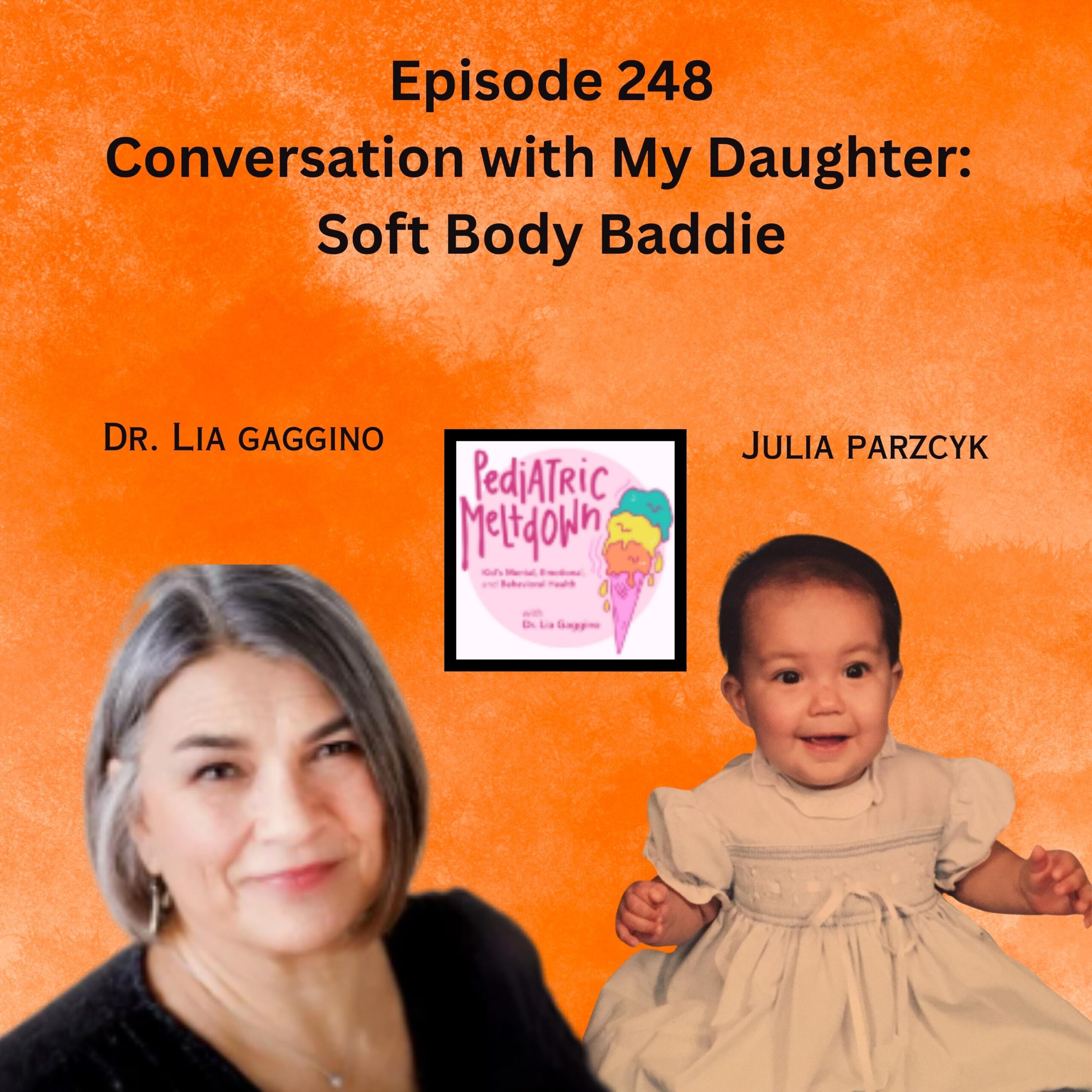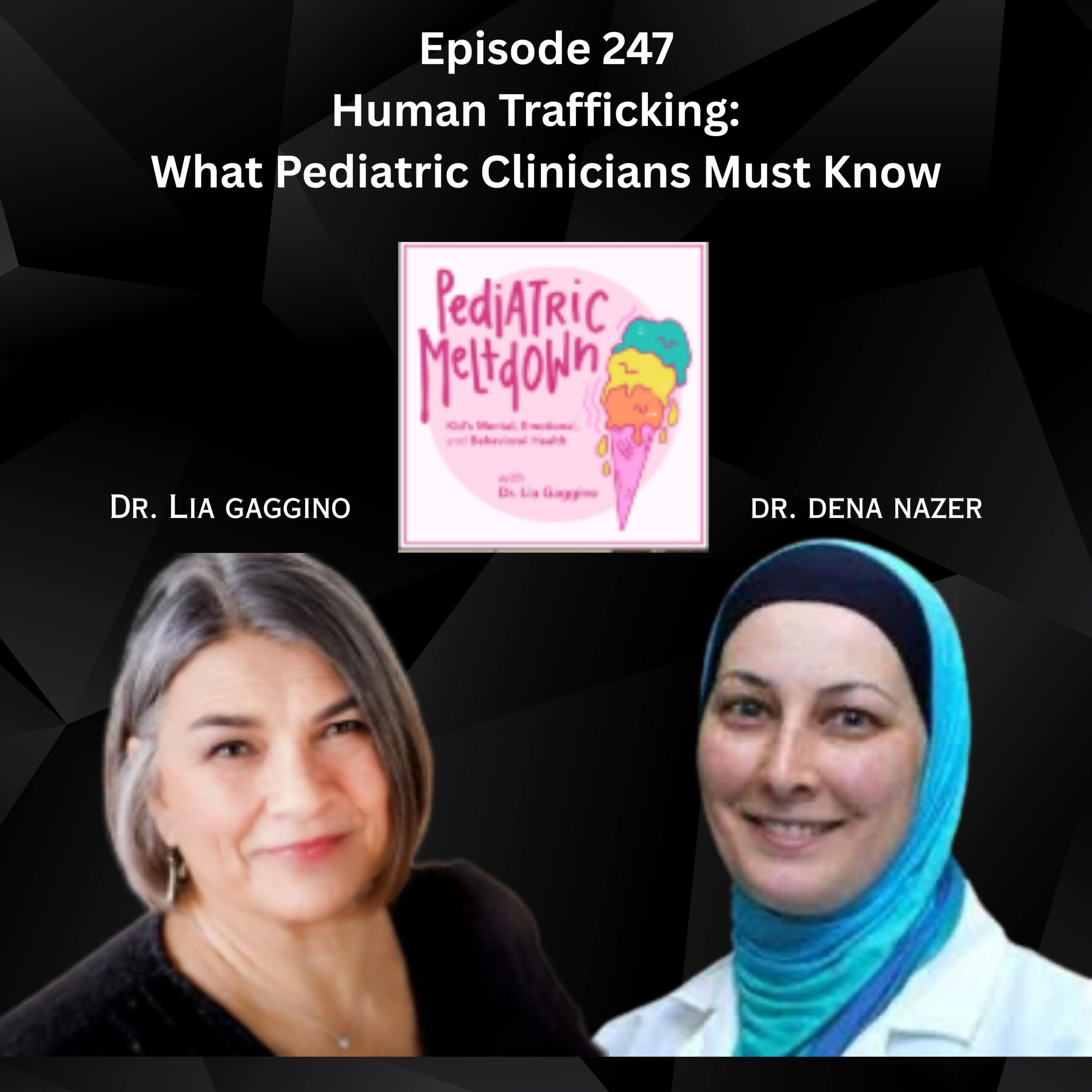Welcome to Pediatric Meltdown, the podcast for busy pediatricians who want to better understand children’s emotional health and behaviors and gain the skills and knowledge to help them thrive. I am your host, Lia Gaggino. In this episode, we are joined by Dr. Heather C. Forkeyl, MD
Heather C. Forkey, MD, is a Professor of Pediatrics at the University of Massachusetts Chan Medical School, and Division Director for the Child Protection Program and Foster Children Evaluation Service (FaCES) of the UMass Memorial Children’s Medical Center. She also serves as the Medical Director of Lifeline4Kids at the University of Massachusetts Medical School. She received her undergraduate degree from Cornell University and medical degree from the State University of New York at Buffalo School of Medicine and Biomedical Sciences. She completed her pediatric residency and chief residency at the Children’s Hospital of Philadelphia. In addition to her clinical work, Dr. Forkey has been the recipient of local and federal grants to address issues of children in foster care and to translate promising practices to address the physical and mental health needs of children who have been traumatized. She has published and presented nationally and internationally on the topics and serves in leadership roles for the National Child Traumatic Stress Network and the American Academy of Pediatrics on issues related to foster care and child trauma. She recently co-authored the book Childhood Trauma and Resilience: A Practical Guide, now available from AAP Press.
We commonly think of the human response to trauma, stress, and threat as “fight, flight or freeze”, but there is one more, “affiliate”. We are designed to be with others and resilience lies in our ability to find safe, stable, and nurturing relationships. Our past is not our future and surrounding ourselves with those who truly care for us is the key to thriving.
Key Highlights:
[00:01 – 18:47] Affiliate Response: Recognition of Young Adults from Foster Care having Similar Outcomes Yet Genetically Unrelated.
- Various aspects how toxic stress impact kids
- Kids that experience trauma has impacts on immune system, neural pathways and that are rapidly endocrine system especially epigenetic areas.
- Ex. why traumatized kids might have constipation.
- Fight-Flight and Freeze has a limited Benefits
- Affliation: How one can be able to ask for help managing stress
- How humans has evolved to have an ability recognizing what is safe and not safe
- Pulling people to manage stress together.
- Affiliate response
- Safe, stape and nurturing.
- Tiger Chameleon: Determining trauma through patterns.
- Dr. Baylin coming up with animal analogies responding exposure to trauma
- Tigers are kids associated with developmental delay that feels constantly threatened.
- Chameleons are kids that can look like manipulators but infact they are just good at using clues and can manage situations.
[18:48 – 43:47] How Behaviors should not be placed out of the blue.
- Cognitive triangle: Thought leads to feeling that leads to a behavior
- Changing negative message can help kids change their cognitive triangle processing into a positive one.
- Interactions from caregivers, is shaping your map and the map of your world.
- How parents and kids has the opportunity to rewrite the map
- Three R’s: Reassure, Routine, Regulate
- Stress kids has a difficulty of Learning the skills of play
- Letting the child lead by using Praise Paraphrase pointed out and not use the cues for families who stressed
- Stay Curious, Asking open-ended questions
- Doing it with respect and empathy
- It’s natural for peditricians in recognizing affiliate response
- Trauma Coaches are employed to train foster parents to understand trauma
- Accompanying the kid’s growth and making them understand the process especially to those who have serious diagnosis.
[43:48 – 50:34] Closing Segment
[50:35 – 54:34] Final Take-Aways
- The key to resilience following trauma is affiliate.
- The ACEs study laid the groundwork for the science of toxic stress, epigenetics, and resilience.
- The science that followed. That has the stress and toxic stress response, fight-flight-freeze explained many behaviors and outcomes.
- We evolved for affiliation.
- Social salience is the ability of our brains to sort out which affiliations are safe, staple, and nurturing.
- When thinking about toxic stress and the stress response, think about it with some analogy.
- Your past is not your identity and does not predict your future.
- One must understand that many children who have been traumatized internalize that they are not worthy of being helped and that their experiences shape their own map and the map of the world.
- Three R’s Re-assure that you are safe, Routine to create predictability out fo chaos and
- Regulate such as shutting down stress.
- The P’s Praise, Paraphrase and Play
- The cues, those things to avoid “be quiet, quit doing that.” Quashes the behaviors and quashes play and dreams.
- Support our parents and caregivers.
- Stop and take a breath to affiliate with others, your staff, your partners, your family, and your friends, and tell stories. It
- it’s all about relationship affiliates.
Connect with Dr. Heather Forkey visit www.umassmemorial.org
Resources Mentioned:
Childhood Trauma and Resilience: A Practical Guide https://shop.aap.org/childhood-trauma-and-resilience-a-practical-guide-paperback/
ARC: Attachment, Regulation and Competency https://arcframework.org
Building Resilience: Remarks from Andrew Garner https://www.youtube.com/watch?v=TzHSxUUZPlk
Key quotes:
“I think letting them give voice to that. There’s nothing such thing as a wrong emotion. Sometimes we can act wrongly on an emotion, but having the emotion, it usually comes from a place that’s real, like there’s a fear or there’s an experience that has led to that and letting people voice that and then begin, you can’t go pass it unless you have the opportunity to get it out and to affiliate around what’s frightening you.” – Dr. Heather C. Forkey
THANK YOU FOR YOUR SUPPORT!
Pediatric Meltdown was listed as a Top 20 Pediatric Podcast on FeedSpot.
If you’d like to connect with me, you can find me on LinkedIn, Facebook, Instagram, and Twitter, or email me at gagginol@medicalbhs.com or gagginol@yahoo.com. To learn more about me visit https://www.medicalbhs.com/
LOVE WHAT YOU HEARD? Leave us a 5-star review so we can continue to provide you with great content. Share this episode and help people know more about children’s health and well-being.



